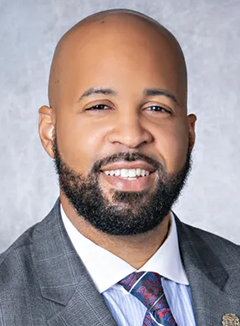Author and theologian Howard Thurman once said, “There is something in every one of you that waits and listens for the sound of the genuine in yourself.”
In 2025, as we grapple with uncertainty and challenges, this call to authenticity feels urgent. I imagine Dr. Martin Luther King Jr. sitting with us, asking if we still hear the sound of the genuine in our communities urging us to listen, to act, and to love.
To my friends and neighbors, we’ve endured much: a pandemic that deepened divides, social unrest that exposed lingering inequities, and civic discord that tests our unity.
Yet, amidst it all, Dr. King’s vision endures. It calls us to confront these challenges not with despair, but with hope and an unyielding commitment to justice.
In “The Strength to Love,” King reminds us that courage doesn’t emerge in the absence of fear, but in our willingness to face it head-on with love as our guide.
His words echo in every effort to rebuild and reimagine — whether through ensuring equitable schools, advocating for safer neighborhoods, or creating opportunities for economic security. His belief in the power of transformative love remains a roadmap for us today.
In “Where Do We Go From Here: Community or Chaos?” King challenged us to reckon with the choice before us: to either embrace the challenging work of building a community where all can flourish or succumb to the forces that divide us.
That question looms even larger now, as families and communities navigate the compounded struggles of the past few years. But I see hope rising all around us.
I see it in My Brother’s Keeper Nashville, creating spaces where young men of color can lead and thrive. I see it in Creative Girls Rock, which helps young girls discover their purpose and potential. These organizations, and others like them, embody King’s vision of what’s possible when we commit to one another.
Community is more than a concept — it’s a living, breathing commitment, a sacred vow to lift one another up. It’s social action: mentoring a child, volunteering in a neighborhood program, or organizing to meet urgent needs.
It’s civic action: showing up to vote, engaging in public discourse, and demanding accountability from our leaders. It’s spiritual action: grounding ourselves in the belief that we are all connected, and that this connection demands we care for one another deeply and intentionally.
This is my letter to you, my neighbors, my friends. We cannot give in. Dr. King’s vision for the beloved community is alive, but it requires all of us.
Dr. King once said, “There comes a time when one must take a position that is neither safe, nor politic, nor popular, but he must take it because conscience tells him it is right.”
About the author: Ashford Hughes is co-chair of My Brother’s Keeper Nashville. This appeared as a guest essay in The Tennessean.







